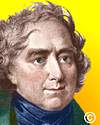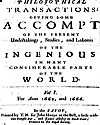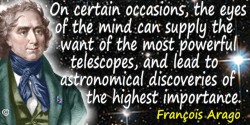 (source)
(source)
|
François Arago
(26 Feb 1786 - 2 Oct 1853)
French physicist and astronomer whose accomplishments include discovering the chromosphere of the sun, and the laws of light polarization. He later entered French politics.
|
François Arago
“Destiny of a scientist”
Illustrated Quote - Large (800 x 400 px)
More François Arago quotes on science >>
This quote comes from a work, published postumously, in which Arago pointed out, as the title makes clear: The Usefulness of Pensions Granted to Scientists, Writers and Artists. The Frenchman, François Arago, had already made significant contributions to science when later in life he became a republican politician. This gave him the opportunity to recommend to the government that certain savants in France be supported with state pensions to enable the nation to advance in science, technology, and the arts. Genius should be nurtured so an individual can be productive without the struggles of poverty.
After describing the worthy work of French scientists, Arego wrote (in his original French):
“Connaître, découvrir, communiquer, telle est, au fond, notre honorable destinée.”
which can be found translated as:
“To get to know, to discover, to publish—this is the destiny of a scientist.”
A translation closer to the original words could be: “To know, to discover, to publish, this is, basically, our honorable destiny.” The above translation, was clarified by adding the word “scientist” from the context.
To justify government supporting them financially to concentrate on their work, he continued:
“Sans doute, il existe des hommes de haute intelligence, chez qui ces nobles passions sont primées par l'amour des richesses; mais ces mêmes hommes courraient-ils donc avec moins d'ardeur vers le bonheur imaginaire que la fortune promet, si le sort les avait mis aux prises avec la misère?”
Translated loosely,1 he was saying that no doubt there are highly intelligent men among whom love of wealth rewards these passions, but the same men would have less zeal if fate had left them struggling with poverty and an imagined happiness of promised fortune.
- Science Quotes by François Arago.
- 26 Feb - short biography, births, deaths and events on date of Arago's birth.
- François Arago - context of quote “Destiny of a scientist” - Medium image (500 x 250 px)









